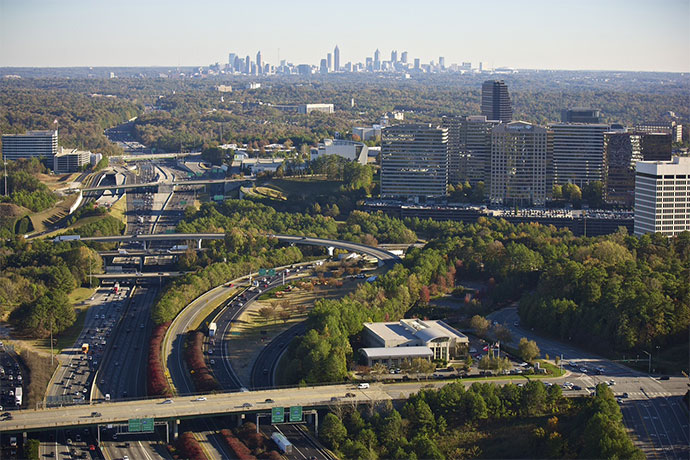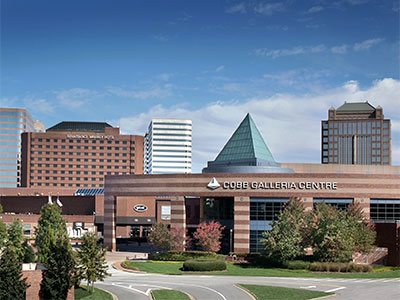
From Hank Aaron’s 715th home run to Sid Bream’s pennant-winning slide into home plate, Atlanta has been the site of some of the most historic moments in Major League Baseball history.
Starting in 2017, the “Home of the Braves” will begin a new chapter of history in a brand-new ballpark about 12 miles to the north in Cobb County, Ga., a booming, affluent suburb of more than 710,000 people and a host of corporate employers.
On Nov. 11, the Atlanta Braves announced they would leave their 17-year-old home ballpark of Turner Field in downtown Atlanta and build a new $672-million stadium on a 60-acre (24-hectare) site at the interchange of Interstates 75 and 285 in the Cumberland Community Improvement District of Cobb.
While keeping an Atlanta address, the Braves — owned by Liberty Media Corp. in Englewood, Colo. — are leaving the city that has hosted the National League club since 1966, the year the team relocated from Milwaukee to a Georgia city that at the time was smaller than Birmingham, Ala.
“We’ve played in our current facility for quite some time, and it was with mixed emotions that we made this decision because we have many great Braves baseball memories that occurred for all of us … in that facility,” said Braves President John Schuerholz. “But we are quite enthused about where our new facility will be.”
While many Braves fans and City of Atlanta leaders expressed shock at the sudden announcement — which came on an otherwise quiet Monday morning without any advance warning — one official who did not express much shock or dismay at the news was Atlanta Mayor Kasim Reed.
“The Atlanta Braves are one of the best baseball teams in America, and I wish them well,” the mayor said shortly after the club made its announcement. “We have been working very hard with the Braves for a long time, and at the end of the day, there was simply no way the team was going to stay in downtown Atlanta without city taxpayers spending hundreds of millions of dollars to make that happen.”
Reed added that Cobb “made a strong offer” of public financing support to the Braves to make this deal happen, “and we are simply unwilling to match that with taxpayer dollars.”
Braves To Pay 55 Percent of Stadium Costs
The details of the new stadium financing were not made public until Nov. 20, but they don’t appear to be as burdensome for Cobb taxpayers as some first believed.
Under the terms of a Memorandum of Understanding between the Braves, Cobb County and the Cobb-Marietta Coliseum and Exhibit Hall Authority, the county’s maximum contribution to the project will be $300 million. Funding sources are slated to include the county’s existing hotel/motel tax; a new rental car tax to be approved by the county; reallocation of $8.67 million of current county ongoing annual revenues; a 3-mill property tax increase on real estate in the Cumberland CID; and a $3-per-room-night charge on hotels and motels in the CID.
The 20-page MOU states that the Braves’ portion of the up-front stadium costs will be no less than $230 million, and team officials said the club would assume 55 percent of the funding costs for the entire project. In addition, the MOU calls for the Braves to pay $6 million a year in rent over the term of the 30-year lease agreement.
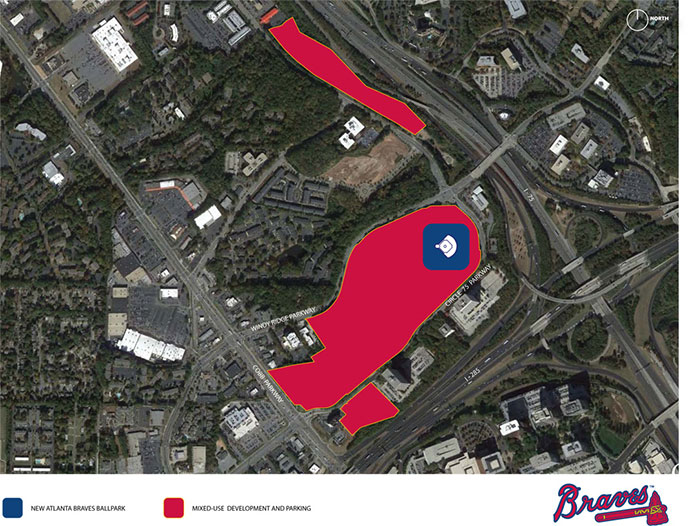
Mike Plant, executive vice president of business operations for the Braves, told Site Selection that the team made the decision to move to Cobb after trying unsuccessfully for years to secure needed stadium and area improvements from the City of Atlanta.
“We knew looking at our lease coming to its termination in 2016, this facility (Turner Field) would need a substantial amount of maintenance and upgrades,” says Plant. “It was a 20-year-old, value-engineered facility. Most things have a life span of only so many years. Millions of people come through Turner Field every year. To sign another 20-year lease, we needed to make sure all those upgrades would be made — about $150 million to $200 million in work. That is no different than any other commercial facility. You need to refurbish it and renovate it every so often.”
The mayor balked at paying those costs. “Given the needs facing our city and the impact of Turner Field stadium on surrounding neighborhoods, that was something I and many others were unwilling to do,” he said. “The city currently has a $900-million backlog of critical infrastructure improvements that I have pledged to take on during my second term in office. We need to work on improving our roads and bridges, synchronizing our traffic signals and expanding our green spaces. As I said today, the timing simply was not right to assist with public funds to subsidize a second major sports team at a time when our neighbor, Cobb County, has made such a generous offer to the Braves.”
Falcons’ Stadium Deal Was a Factor
The Braves’ decision to relocate comes shortly after the City of Atlanta and Fulton County pledged to commit $200 million toward funding a new $1.2-billion retractable-roof stadium for the Atlanta Falcons of the National Football League.
Politically, the mayor said, it was not feasible to go back to the taxpayers of Atlanta and ask them to subsidize construction of a second major sports venue in the city.
Plant told Site Selection, however, that the Braves had needs that extended well beyond stadium repairs and upgrades. “The other big piece of this is access,” he notes. “The number one reason our fans don’t come to more of our games is the lack of access. We are devoid of about 5,000 parking spaces when we are full.”
“The timing simply was not right to assist with public funds to subsidize a second major sports team at a time when our neighbor, Cobb County, has made such a generous offer to the Braves.”
Drawing about 2.5 million fans a year, the Braves now rank in the middle of the pack in home attendance in the National League, despite making the playoffs in three of the past four years. The Braves are down from their high of 3.23 million tickets sold in 2000 — the last time the club ranked in the top five in the league in attendance.
The Braves’ planned new stadium, at 42,000 seats, will actually have 8,000 fewer seats than Turner Field, but much better access to the club’s fan base, according to Plant.
On the same day the Braves announced their move, the team released a map showing the home location of every fan that purchased a ticket to a game in 2012. The vast majority of ticket buyers live in Cobb, Gwinnett, North Fulton, Forsyth and other counties in the northern suburbs of Metro Atlanta.
Plant says the deal came down to five factors:
- The need to move the Braves closer to their fan base
- Much better access through transit
- A greatly improved parking solution
- An ability to connect to a surrounding retail and entertainment district
- The ability of the team to control the entire development.
Plant says the Braves initially explored locations in DeKalb County, Alpharetta in North Fulton County, and other sites along Georgia 400 north of Atlanta before settling on the Cumberland CID area in Cobb.
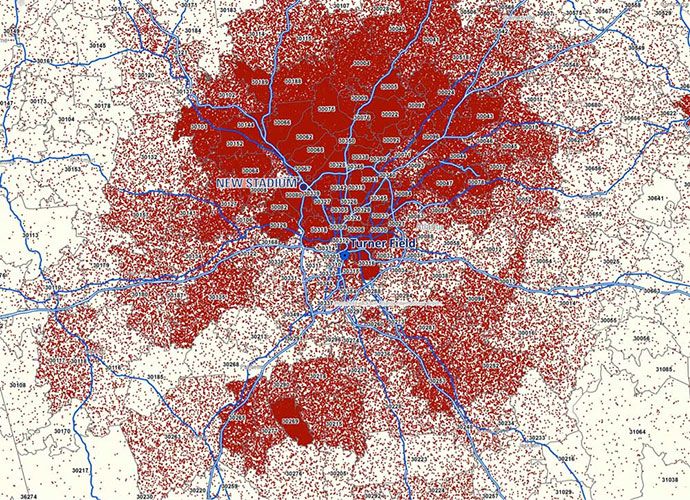
The Braves did not look at Gwinnett County because “we already have a beautiful triple-A facility there for our fans,” says Plant. Gwinnett is home to the Gwinnett Braves, which relocated from Richmond, Va., in 2009. Coolray Field, home of the Gwinnett Braves, is located on Buford Drive in Lawrenceville, about 2 miles east of the Mall of Georgia. Gwinnett County government built the stadium for the G-Braves at a cost of about $64 million in taxpayer money.
“None of the issues that we were facing were really being addressed at our current location in downtown Atlanta,” says Plant. “We put a number of proposals on the table, and nothing happened. We have tried for a number of years to build a development around our site. If we controlled that process, we could probably get comfortable with that.”
City of Atlanta Already Looking Ahead
Mayor Reed said that wasn’t going to happen. “We have been planning on the possibility of this announcement and have already spoken to multiple organizations who are interested in redeveloping the entire Turner Field corridor,” he said. “Over the next three years, we will be working with our prospective partners to bring residential and business development that is worthy of our city and strengthens our downtown. Those conversations will continue and I am excited about how we use the land that is now Turner Field to be a tremendous asset for our residents, our city and our region for years to come.”
Plant said the Braves would have welcomed such development around Turner Field — a stadium originally built to host the 1996 Summer Olympic Games in Atlanta — but he reiterated that “we never made any progress in several years of negotiations with the city.”
As a result, Plant says, “we decided we needed to look at some options. The heat map (of ticket buyers) really told the story. Our fans told us that they weren’t coming back downtown after they left their jobs and went to their homes.”
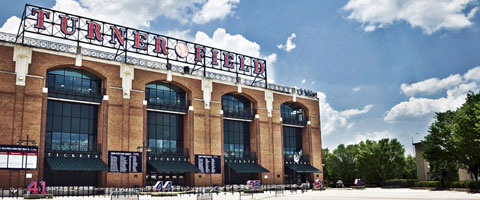
By moving to the Cumberland CID in Cobb, says Plant, the Braves will get everything they want in their future home. “We already have improved access to the site from all sides by moving to this location,” he says. “And with the planned projects in development with the Georgia Department of Transportation, our fans will have much better access to our games. And there will be a substantial amount of parking, not just on site but contiguous to the stadium.”
What really excites the Braves organization, Plant adds, is the ability to plan, coordinate and control the surrounding development. On Nov. 20, the team unveiled plans to develop a $400-million entertainment district — funded entirely by the Braves and a development partner — surrounding the new stadium.
The planned district includes a street lined with retail shops, restaurants and taverns leading up to the ballpark. Plans also include a pedestrian bridge across I-285 linking the stadium district with the nearby Cobb Galleria.
“The beauty here is that we can control the development,” says Plant. “We are the private developer. We are going to build not just a ballpark, but a destination. That is the one thing they don’t have in the Cumberland CID, which already has the third highest occupancy in office and retail space in the entire Atlanta MSA.”
Braves Expect Positive Cobb County Vote
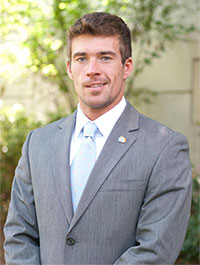
The five-member Cobb County Commission is set to vote on the MOU authorizing the Braves stadium development plan on Tuesday, Nov. 26. If the measure is approved, construction on the new stadium could begin in early 2014.
“We are very optimistic that we will get the approval of the commissioners,” notes Plant. “Jones Lang LaSalle and others have been assisting us as consultants on this project, and we are following a very aggressive schedule.”
Plant emphasized that the team will not change its address. “The site of our new stadium will retain an Atlanta address,” he says. “We will be part of Atlanta for decades to come. Our fans will continue to stay in Atlanta hotels. None of that will change. We are still the Atlanta Braves. We are not moving to Jacksonville or Chattanooga.”
Plant says the move to Cobb is proof that regionalism works. “Atlanta is a big place with lots of counties and cities,” he says. “As a business, we have to look at our opportunities. We saw the value and the opportunity to move forward with Cobb County, and we are very thankful for Cobb.”
Brooks Mathis, vice president of economic development for the Cobb Chamber of Commerce, says that Cobb is also thankful for the Braves.
“A win like this will be truly transformational for Cobb County and the Braves organization,” says Mathis. “It will be a completely different environment for the Braves with the mixed-use development going in. The Weather Channel, The Home Depot, Genuine Parts and other major corporate entities already call this area home, and we gladly welcome the Braves to the neighborhood.”
Cobb, in many respects, is already one of the most economically successful counties in America. The U.S. Census Bureau ranks Cobb — home to fast-growing Kennesaw State University — as the most educated county in the state of Georgia and 12th among all counties in the U.S.
Cobb also ranks among the top 100 wealthiest counties in the country, with a median household income of more than $71,000 a year and a high annual income average of $342,000. More than 44 percent of all adults age 25 or older in Cobb have a bachelor’s degree or higher.
The Cumberland District alone boasts more than 24 million sq. ft. (2.2 million sq. m.) of office space. Over the last four decades, Cobb has also ranked as one of the fastest growing counties in America in population.
“The fan base for the Braves already lives here,” says Mathis. “Our community knows the sport of baseball and supports the sport extremely well. East Cobb Baseball is widely regarded as one of the top youth baseball development programs in the nation. The citizens of Cobb will benefit greatly from this move. Tourism is already our number one industry in Cobb. We are home to the Atlanta Ballet and the Atlanta Opera, and very soon we will be the home of the Braves.”
Transit Upgrades Are Part of Plan
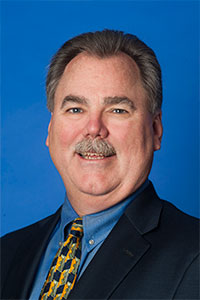
Mathis notes that, for fans who are worried about traffic congestion in the I-75/I-285 corridor, many transportation infrastructure improvements are on the way. “Even before the deal with the Braves was announced, the plan was in place to install HOT [High Occupancy Toll] lanes up I-75 and improve the flow of traffic,” he notes.
Planned transportation upgrades for the area — outlined in the MOU — include:
- A proposed Windy Hill diverging diamond interchange and corridor improvements extending from U.S. Highway 41 to Powers Ferry Road
- A proposed Windy Ridge Parkway Connector
- GDOT-funded Northwest Corridor I-75 managed lanes from I-285 north to the I-575 split and from I-575 to Hickory Grove Road, and on I-575 from I-75 to Sixes Road, as currently under construction. This $840-million, state-funded project is scheduled for completion in 2018.
- Multiple mass-transit upgrades including a shuttle system that will transport people around the stadium district and connect to other destinations in the Cumberland CID and Cobb Galleria areas.
Also casting his blessing upon the Braves’ move is MLB Commissioner Bud Selig. In a statement released through his office, he said: “The Braves have kept us apprised of their stadium situation throughout this process. Major League Baseball fully supports their decision to move to a new ballpark in Atlanta for the 2017 season, and we look forward to their continued excellence representing their community, both on and off the field.”
Some groups, such as Common Cause and the Georgia Tea Party, have petitioned Cobb County to delay its vote on the stadium deal, but Cobb County Commission Chairman Tim Lee says the vote will proceed as planned next week.
“The part to understand is that the commitment by Cobb County [to the project] is capped,” he said.
While the outcome of that pivotal vote is unknown, one Braves fan who says he looks forward to watching the Braves play in Cobb in four years is Atlanta Mayor Kasim Reed.
“I wish the Braves well and I look forward to traveling 12 miles to Cobb County to see our beloved Braves on Opening Day in 2017,” he said.
